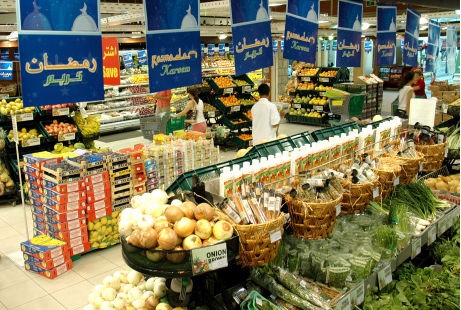Franchising, retail, business

09/02/2015
High fiscal reserves in the GCC act as a strong buffer from global food price fluctuations, an expert said.
Gulf countries are not food insecure thanks to their large fiscal reserves, which allow them to purchase food reserves and store them in times of need, a policy expert said at the World Food Security Summit at Gulfood 2015.
“Food security can be measured in two ways- there is national level food security which is mostly related to food availability, then there is food security at the household level,” said Clemens Breisinger, senior research fellow at International Food Policy Research Institute, a Washington DC-based think tank.
“A common indicator of national level food security is how much foreign exchange reserves a country has in order to afford imported food.
“In this part of the world, only two to three per cent of foreign exchange reserves are being used to import food, unlike many other countries which spend about 20 to 30 per cent of their reserves in ensuring food security. So there should not be any problem of affordability.”
Breisinger also said that food availability at the household level has also been quite strong in the region.
“If you only choose these standard indicators to measure food security, then the Gulf countries cannot be termed as food insecure,” he added.
The food policy expert said that even if there was a sudden jump in food prices across the world, the large fiscal reserves of the Gulf countries will insulate them from major shocks.
Moreover there was also a strong correlation between oil prices and food prices.
“It is estimated that correlation coefficient (of oil and food prices) is 0.93, which means oil prices and food prices move together. So in this part of the world worrying about food prices is not an issue because oil prices bring in a lot of money… and there is also a significant effort to build stocks here.”
Despite such buffers, he noted that food security could be a problem if any of the regular exporters slapped an export ban due to internal reasons.
“The main countries that export wheat and rice are relatively concentrated,” said Breisinger.
“There are only four or five wheat exporting countries and if there is trouble in any of these countries, then there is an inherent risk to the global food system.
Conflicts could also negatively impact food security through disruption to market supply, leading to a global food shortage, the expert said.
In a bid to counter such problems, Breisinger said that the Gulf should be more active in international organisations that shape global food policies.
“Stronger collaboration between Gulf countries will be critical simply because they will have more power in the international institutions,” he said.
Gulf countries have also increasingly focused on developing domestic agriculture or investing in farmlands across the world in an effort to feed a growing population and to reduce their reliance on imports.
Fonte:http://gulfbusiness.com/2015/02/gcc-food-insecure-expert/?utm_medium=email&utm_campaign=Daily+Gulf+Business+Daily+News&utm_content=Daily+Gulf+Business+Daily+News+CID_3d2a257b1aececef56cd5bc1682b470c&utm_source=Email+marketing+software&utm_term=GCC+Countries+Are+Not+Food+Insecure++Expert#.VNnuWvmG98F